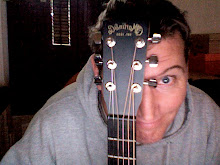Heading into the last weekend before Monday's Iowa caucuses, and the race between the four leading contenders seems too close to call after surges in support for Kerry and Edwards.
Dean, meanwhile, thinks Gephardt's latest medicare attack ad is "hooey".
Monday's vote in Iowa takes place on Martin Luther King day, and Carol Moseley Braun invoked the civil rights leaders as she called it a campaign and gave her backing to Dean. "When women run, when people of color run, we open up the possibility that women and people of color can win," she said, announcing her endorsement of Dean.
Over and above the difficulties of campaigning in an overwhelmingly white state (although Rev Jesse Jackson polled particularly well there when he sought the Democratic nomination in 1988), Moseley Braun was fighting a losing battle when it came to fundraising.
The Democratic candidates have so far spent a total of $21m on television ads, according to a study by a group from the University of Wisconsin.
From new year's day to January 9th, the study shows, more than 3,000 political ads have aired in the state of Iowa. By the time the state votes on Monday, the Democratic candidates will have spent roughly $100 for every caucus-goer, the study finds.
The truly big money-earner, though, - literally the elephant in the room - President Bush will be sending some high level supporters to Iowa and New Hampshire to fly the Republican flag and make sure the administration's message dosen't get swamped among the Democrats' partying.
Among those out stumping for the president? his nemesis from the 2000 primary campaign John McCain, former New York mayor Rudy Giuliani, and, er, Jim Nussle.
The Democrats, meanwhile, are expected to debate at Dartmouth College on January 25th.
Dean, meanwhile, thinks Gephardt's latest medicare attack ad is "hooey".
Monday's vote in Iowa takes place on Martin Luther King day, and Carol Moseley Braun invoked the civil rights leaders as she called it a campaign and gave her backing to Dean. "When women run, when people of color run, we open up the possibility that women and people of color can win," she said, announcing her endorsement of Dean.
Over and above the difficulties of campaigning in an overwhelmingly white state (although Rev Jesse Jackson polled particularly well there when he sought the Democratic nomination in 1988), Moseley Braun was fighting a losing battle when it came to fundraising.
The Democratic candidates have so far spent a total of $21m on television ads, according to a study by a group from the University of Wisconsin.
From new year's day to January 9th, the study shows, more than 3,000 political ads have aired in the state of Iowa. By the time the state votes on Monday, the Democratic candidates will have spent roughly $100 for every caucus-goer, the study finds.
The truly big money-earner, though, - literally the elephant in the room - President Bush will be sending some high level supporters to Iowa and New Hampshire to fly the Republican flag and make sure the administration's message dosen't get swamped among the Democrats' partying.
Among those out stumping for the president? his nemesis from the 2000 primary campaign John McCain, former New York mayor Rudy Giuliani, and, er, Jim Nussle.
The Democrats, meanwhile, are expected to debate at Dartmouth College on January 25th.

